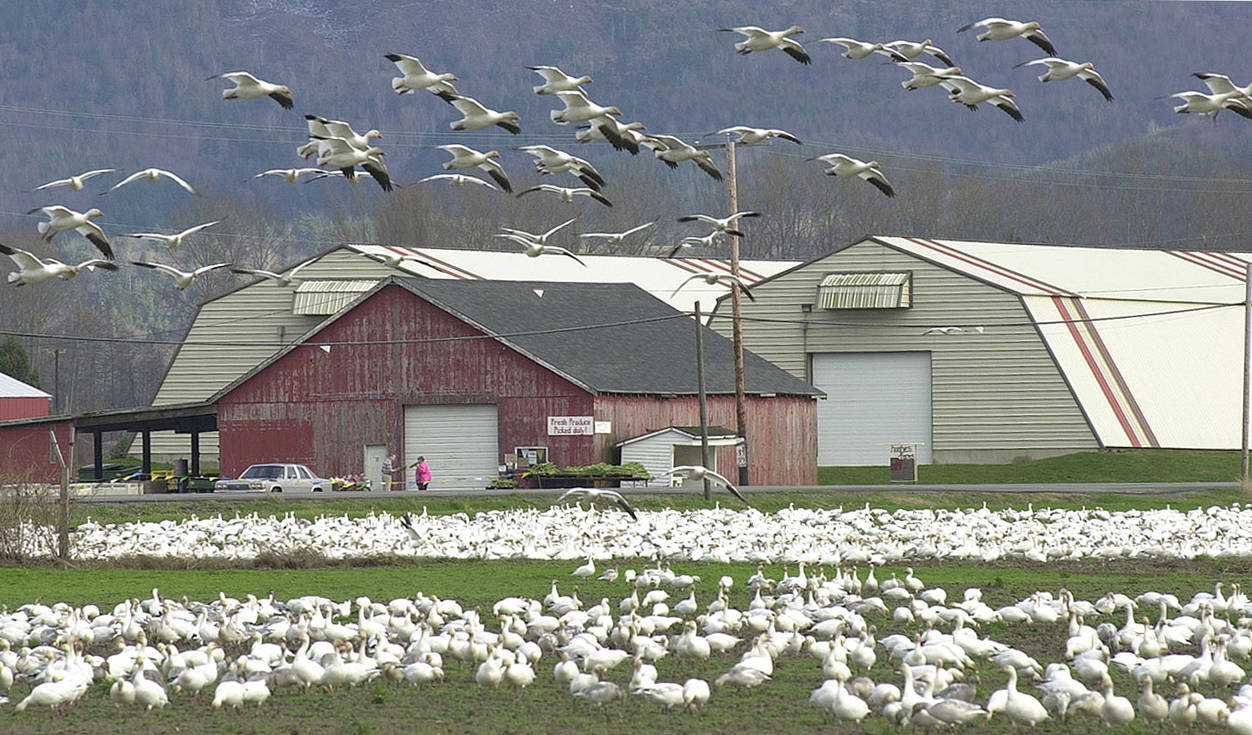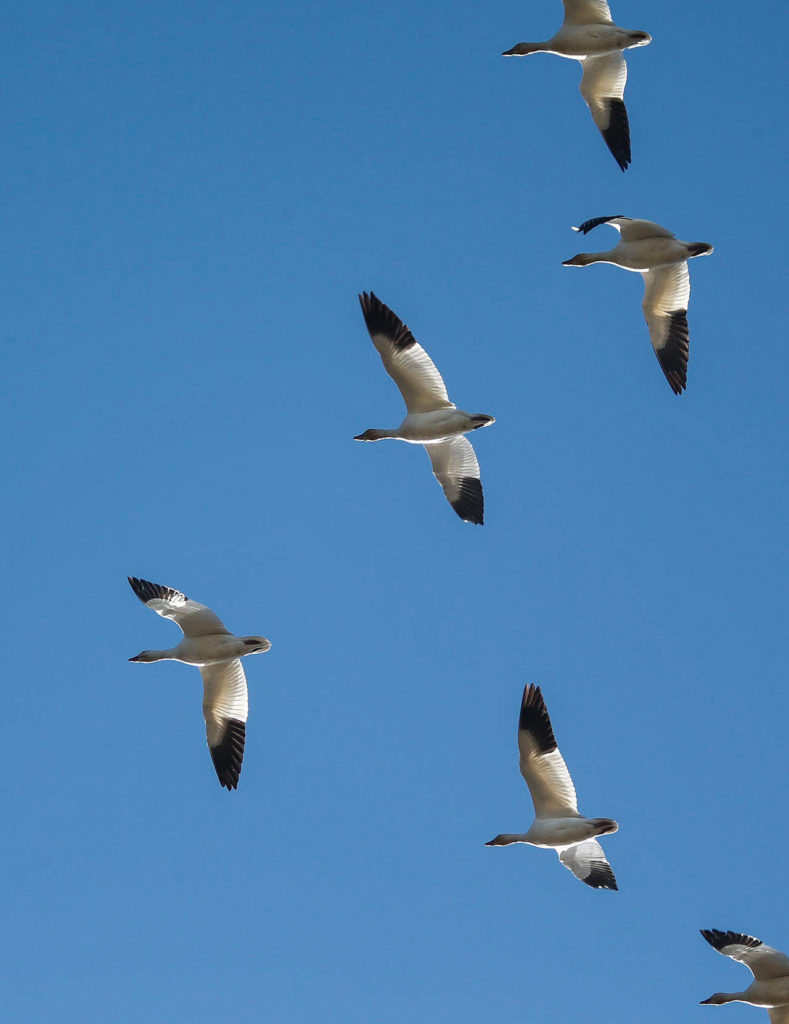Wrangel Island, Russia, may have been the last place on Earth that had a population of wooly mammoths. It has the highest density of polar bear dens in the world. It’s a major breeding ground for lemmings, seals and walrus.
And snow geese.
For more than 30 summers, Russian biologist Vasiliy Baranyuk has studied this restricted nature reserve’s population of snow geese, often without seeing a human being for two months or more.
Baranyuk will be one of the speakers at the Feb. 24-25 free Port Susan Snow Goose Festival, with headquarters in Stanwood.
Tens of thousands of those geese migrate each year to the north Puget Sound and beyond, including the Stillaguamish and Skagit river deltas, and stay to feed and rest before heading north on their 3,000-mile journey back to their traditional nesting grounds.
That journey is accompanied by a bit of irony, or a lesson in unintended consequences. The snow goose population was decimated by overhunting until there were but a few thousand about 1900. Today, in the western and eastern Arctic, populations have tripled since 1973, while the central Arctic population grew much faster.
The irony is that the geese have become part of an ecological problem: The vegetarians’ vigorous approach to eating, yanking much of their food out of the ground, is damaging their Arctic and sub-Arctic breeding areas, which in turn affects other wildlife.
Anyone with even a remote interest in birding, or simply a love of nature, should carve out some time next weekend to attend the birding festival. Although I usually carp about many of the bird fests charging more and more, putting some events beyond the ability to pay for many birdwatchers, kudos to the PSBF for opening this to birders with wallets small and large with free admission.
Some options require registration, so don’t wait. Go to discoverstanwoodcamano.com for festival information and registration.
There are also children’s activities from 1 to 4:30 p.m. Saturday, including bird coloring, using binoculars, bird face painting, migration, and a live raptor presentation.
■ 1 to 2:30 p.m. Saturday. “From Russia to the Stilly,” Vasiliy Baranyuk.
■ 9 to 10:30 a.m. Saturday. “Shorebird Identification,” researcher Gary Slater and wildlife biologist Ruth Milner. Learn the skills to identify common shorebirds found using plumage and vocalizations, feeding ecology and habitat.
■ 10:30 to noon Saturday. “White Birds of Winter,” swan biologist Martha Jordan, Northwest Swan Conservation Association. Learn history, biology and identification native trumpeter and tundra swans, as well as problems and controversies.
■ 3 to 4:30 p.m. Saturday. “Live Raptor Presentation,” Sarvey Wildlife Center. Learn about the center’s mission and get a close-up of the center’s non-releasable raptors.
■ 11 a.m. to 12:30 p.m. Sunday. “The Art of Photographing Birds “(1 to 4 p.m. bus tour requires registration), Karen Ulvestad. Learn techniques and tips for locating birds, best equipment, proper camera exposure, and how to critique your photographs.
■ 1 to 2:30 p.m. Sunday. “Bald Eagles Yesterday and Tomorrow,” wildlife research scientist James Watson. A scientific perspective provides a better understanding and appreciation for the iconic species.
Bus tours
■ Camano Island. 9 a.m. to noon and 12:30 to 3:30 p.m. Saturday; 9 a.m. to noon and 12:30 to 3:30 p.m. Sunday. Guides on the bus will showcase the island’s parks that have a range of habitats, and the large variety of birds that can be seen locally. There will be time for a brief walking tour at each stop.
■ Snow geese. Head out to Fir Island to see snow geese, trumpeter swans and tundra swans with experienced guides who can talk to migration and feeding habits. There will be one or two buses in several time frames, totally nine trips. Check the website for times. The viewing will mainly be from the bus for safety reasons.
■ Nature Conservancy. Two-hour tours include a walk on the dike along Port Susan Bay, one of the largest undeveloped bays in Puget Sound. This area is a saltwater nursery with marshes, mudflats and tidelands that support hundreds of thousands of birds and the raptors that prey on them. Access to this site is usually limited and by appointment only. There will be five tours this weekend. Go to the website for times and registration.
■ 1 to 4 p.m. Sunday, bird photography. The popular three-hour tour is led by Karen Ulvestad. Explore the local birding and test out techniques learned in her “The Art of Photographing Birds” class. The tour uses a photography tour bus with greater visibility than a standard bus.
Columnist Sharon Wootton can be reached at 360-468-3964 or songandword@rockisland.com.
Talk to us
> Give us your news tips.
> Send us a letter to the editor.
> More Herald contact information.


























